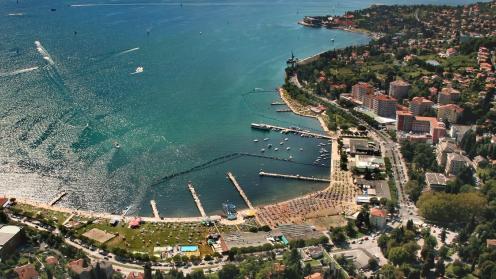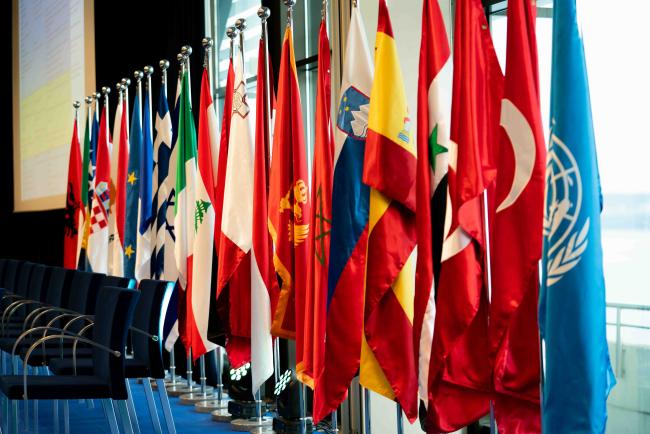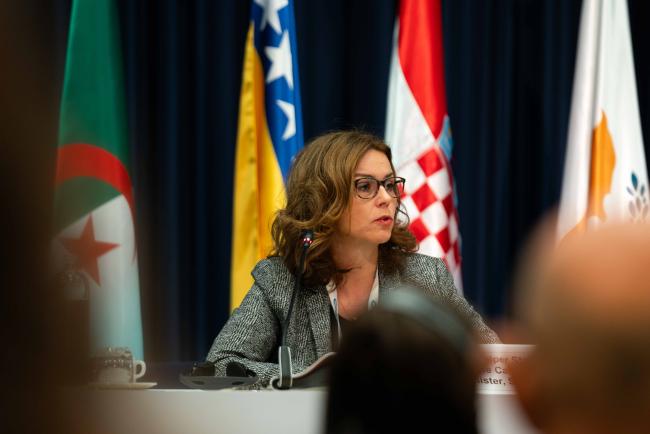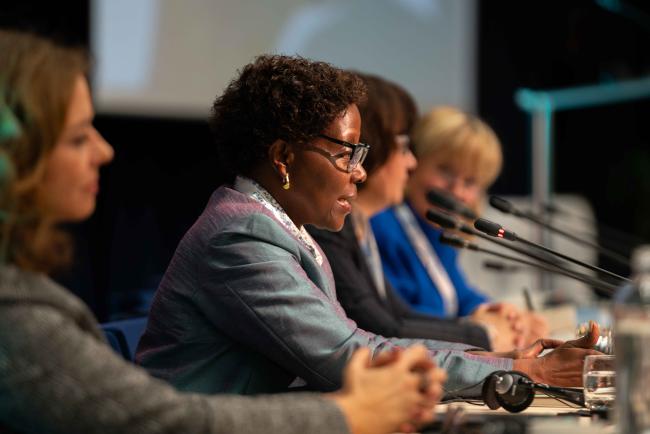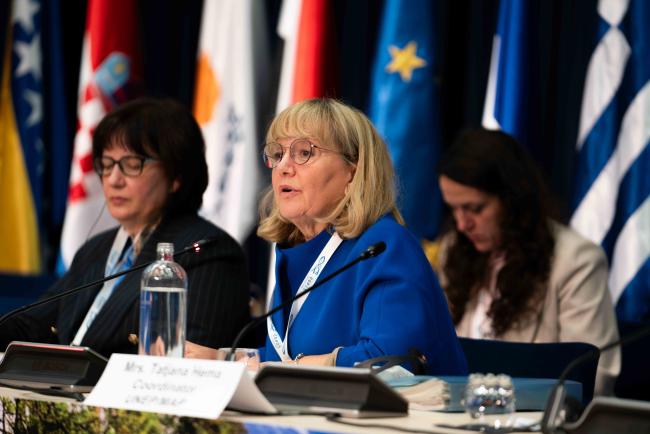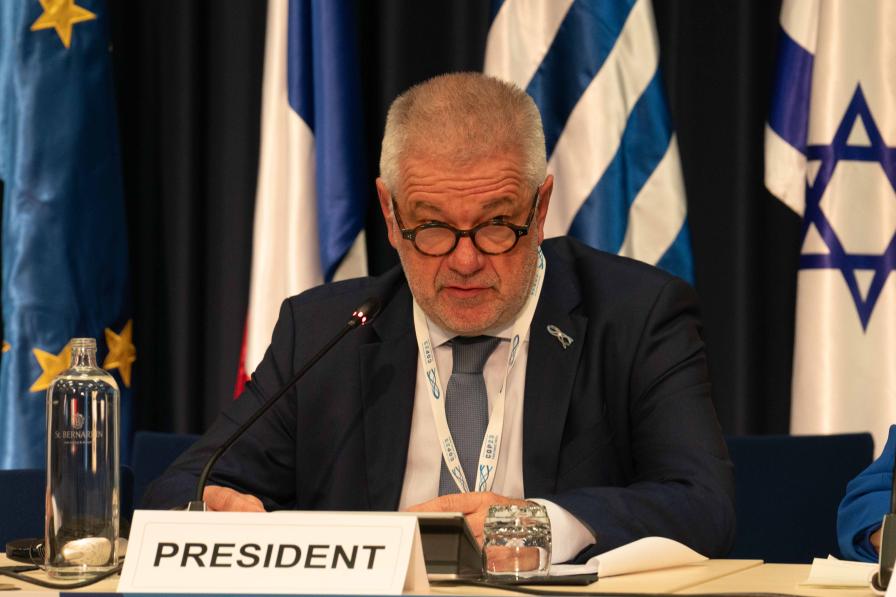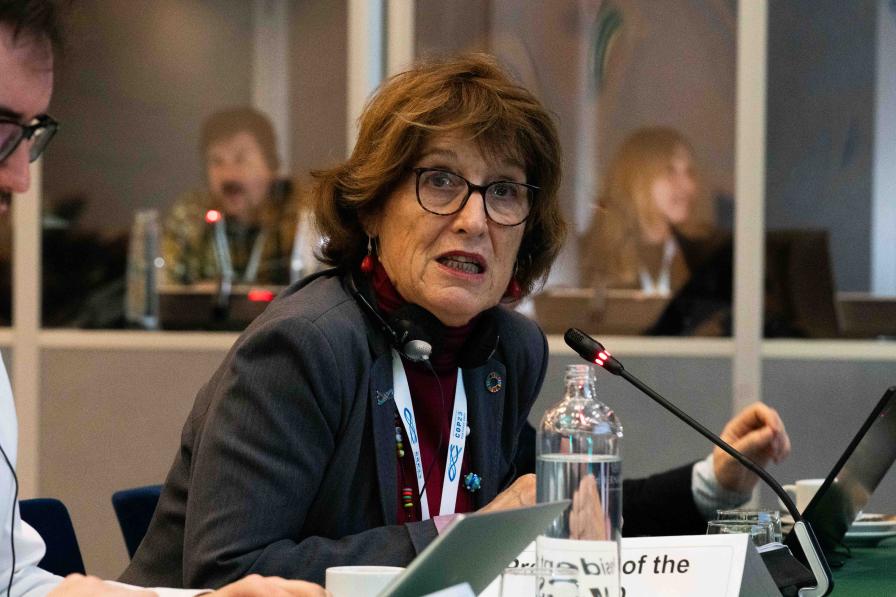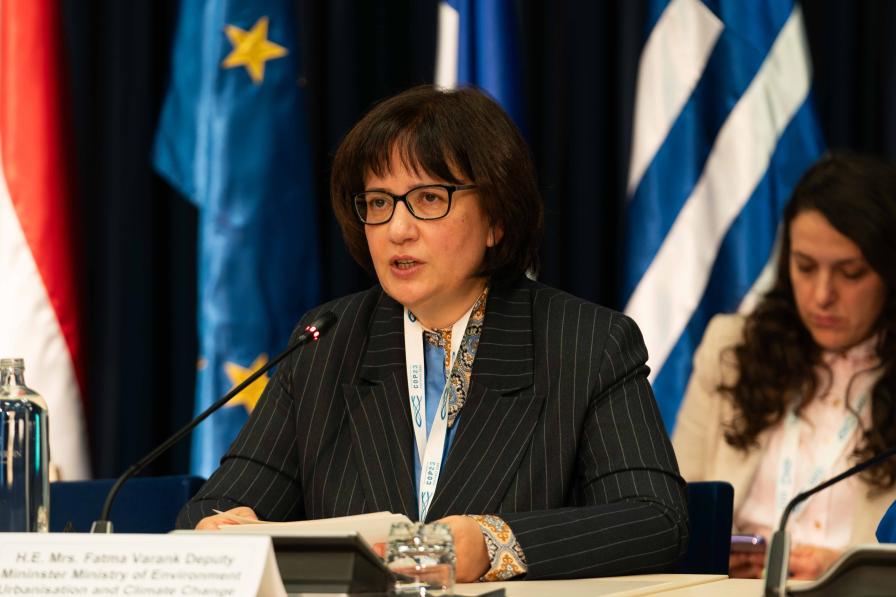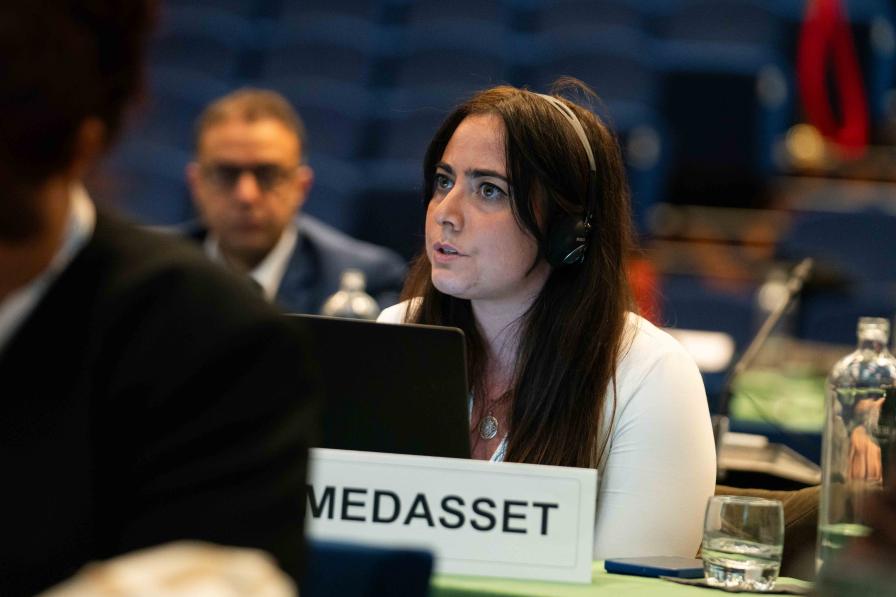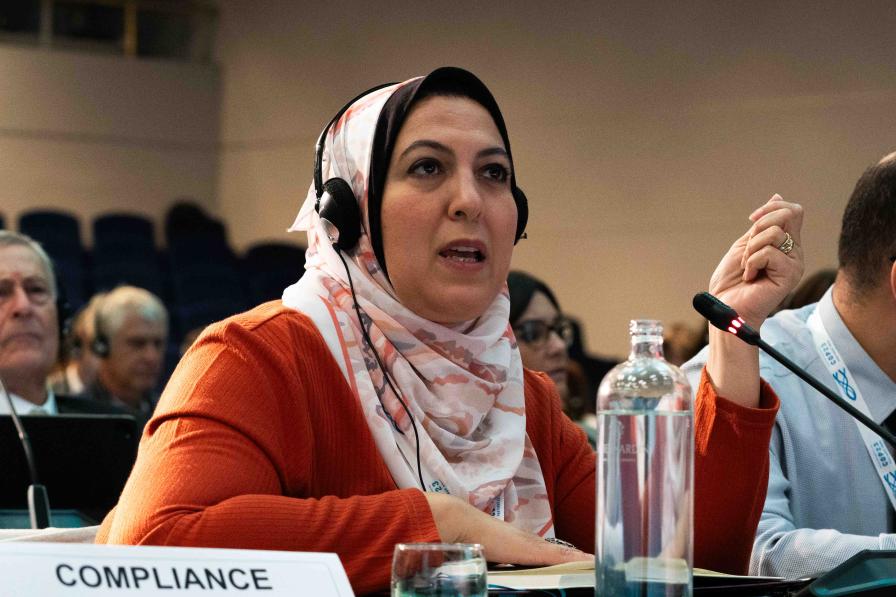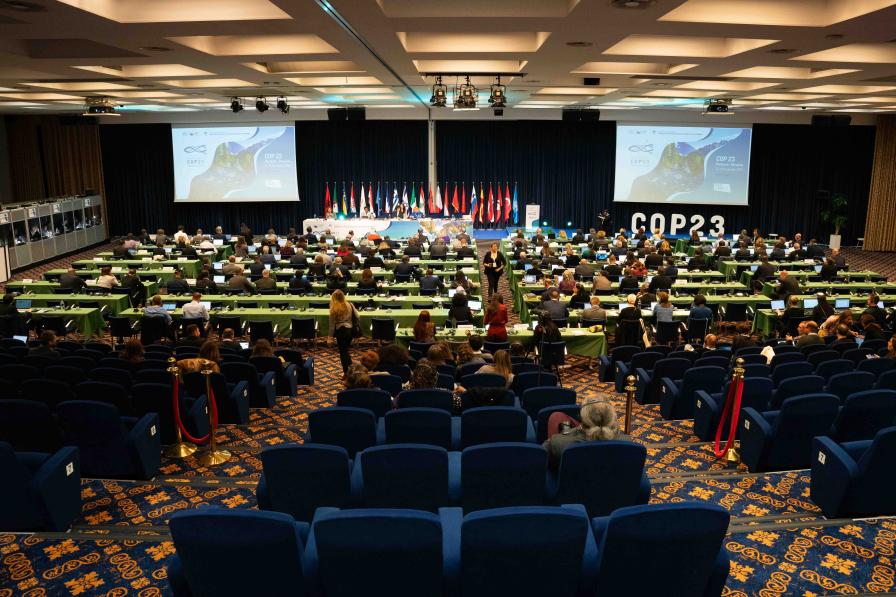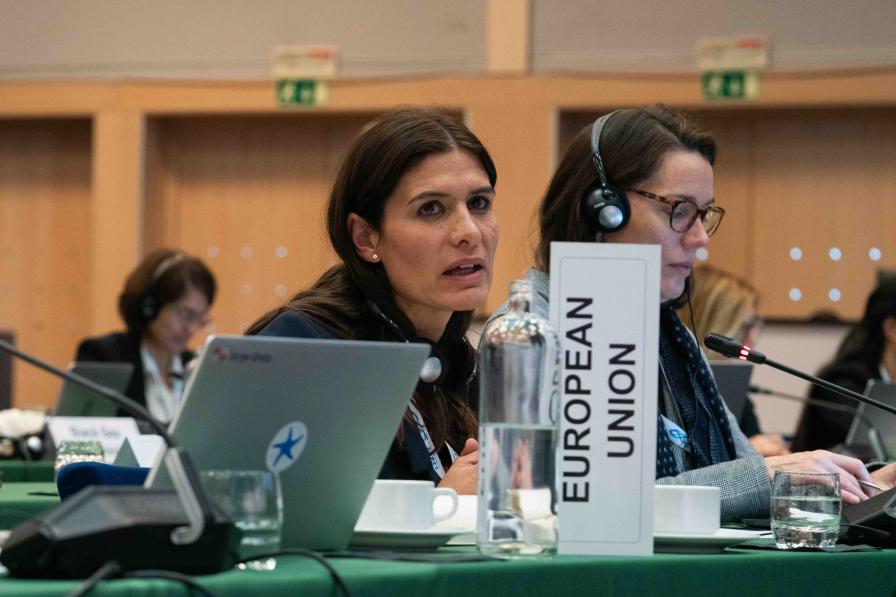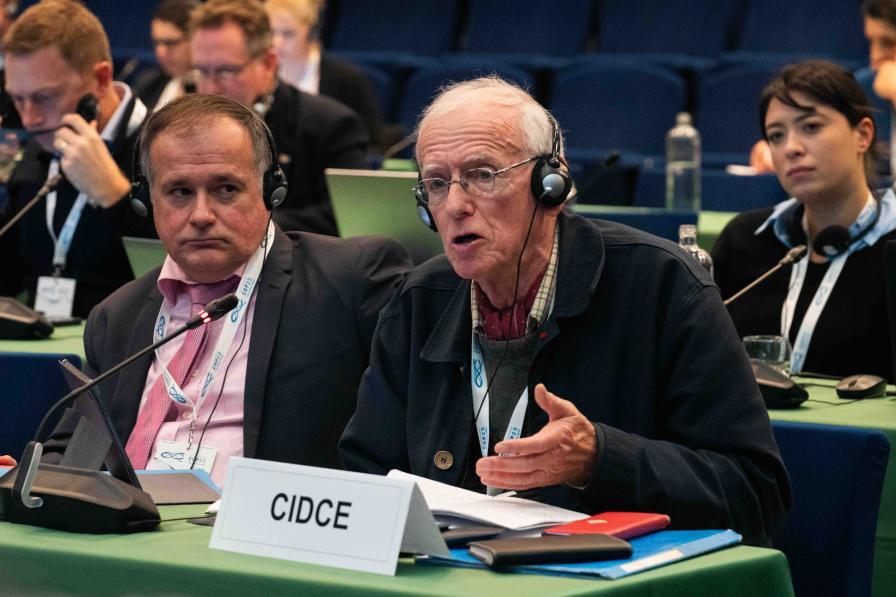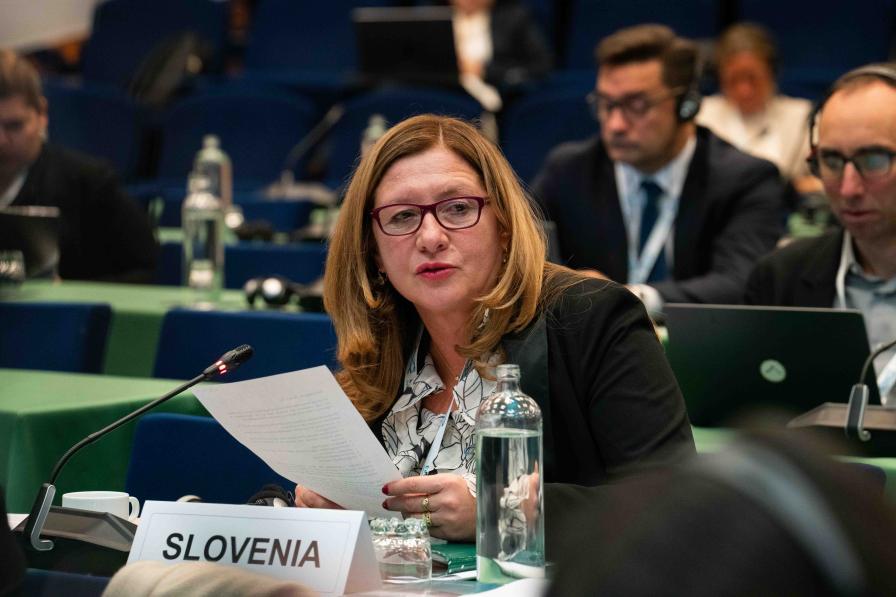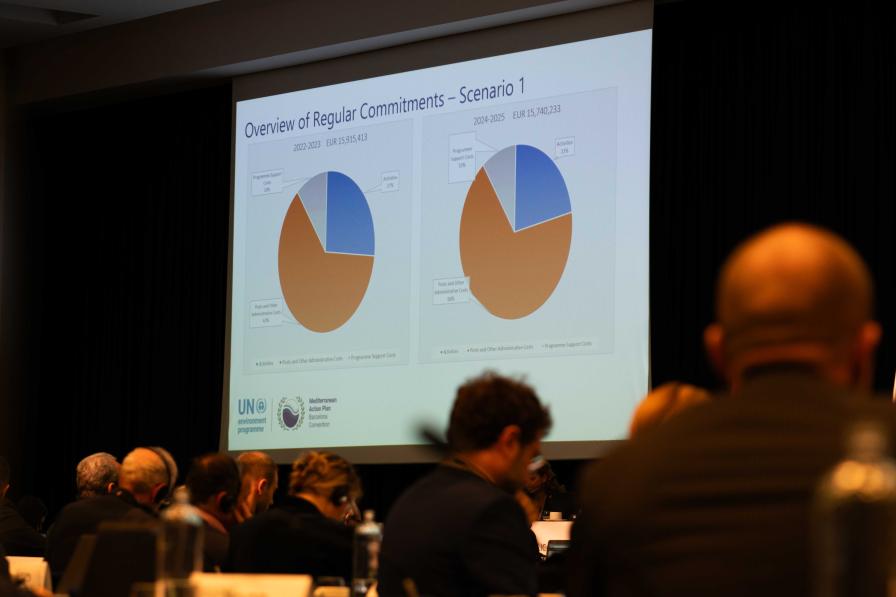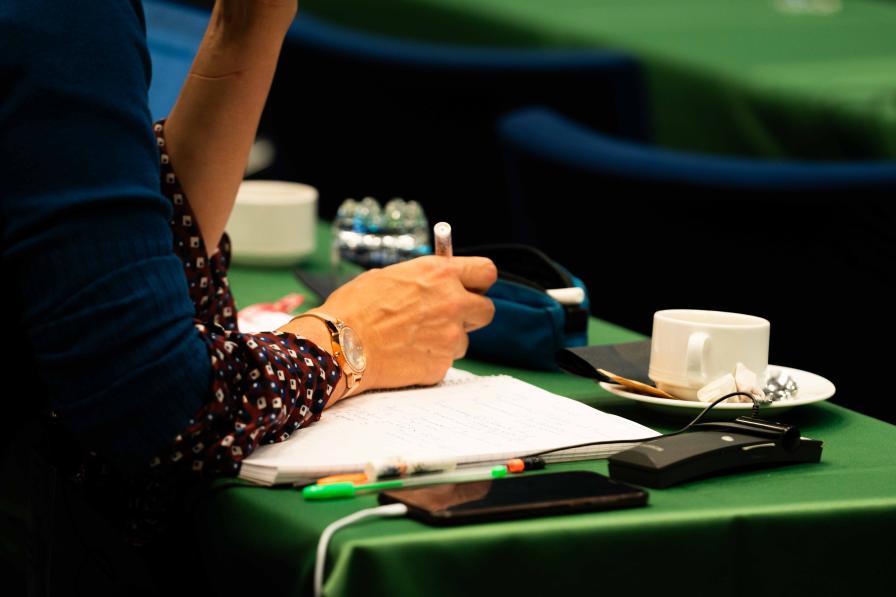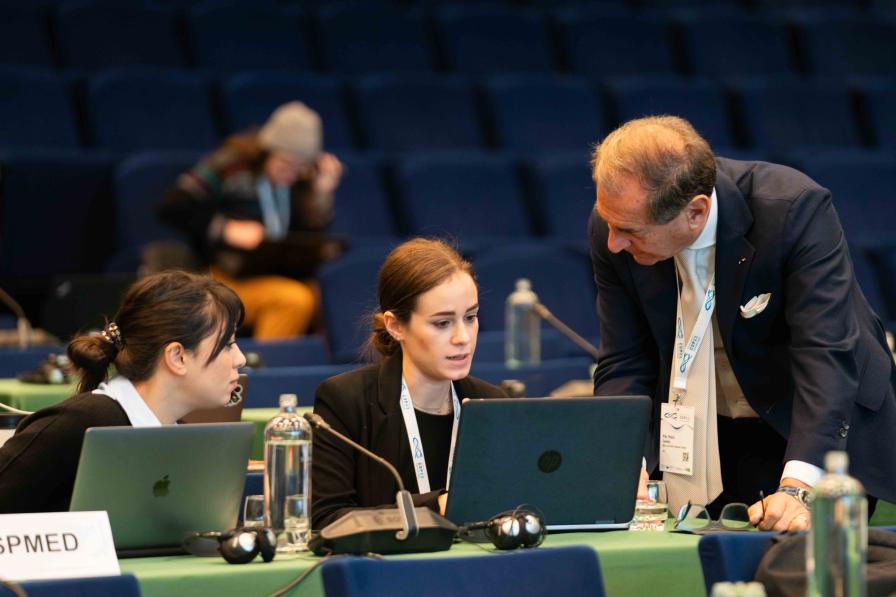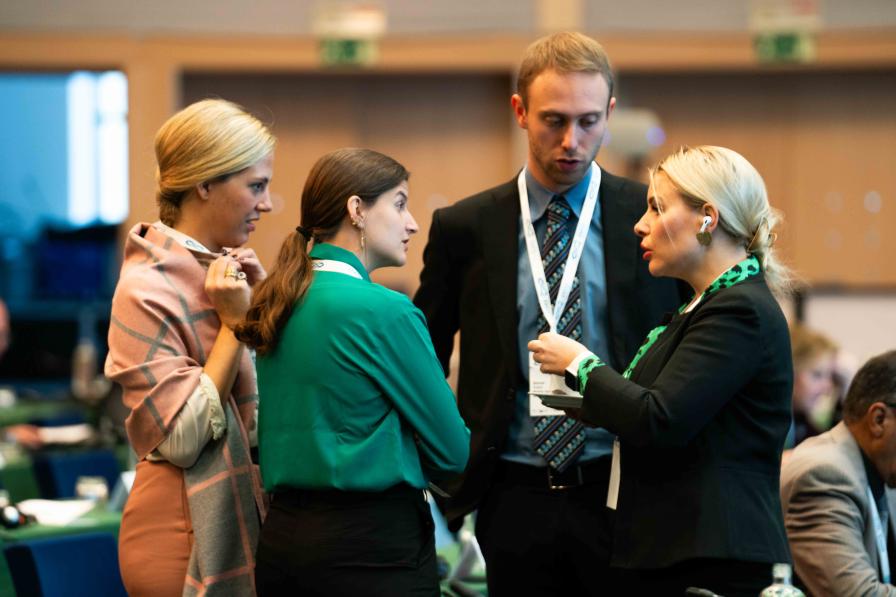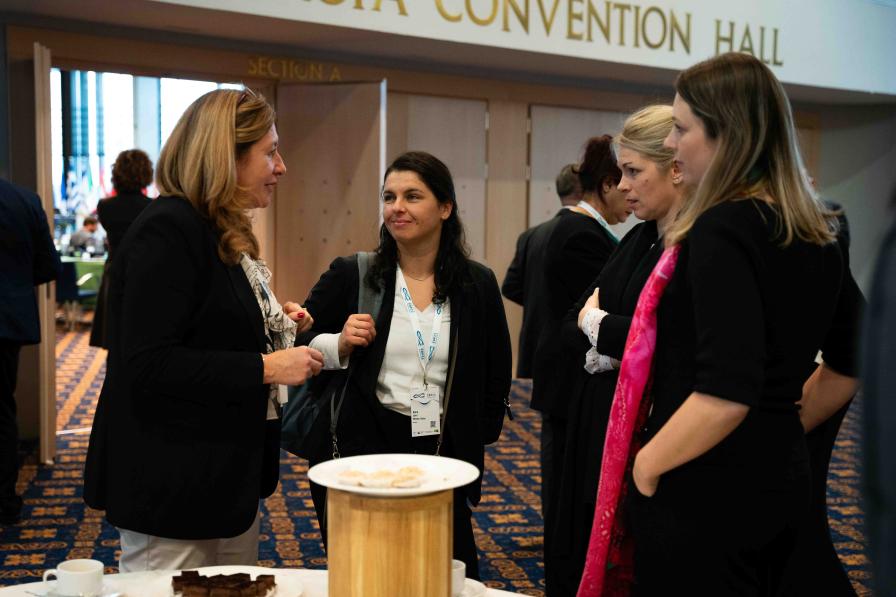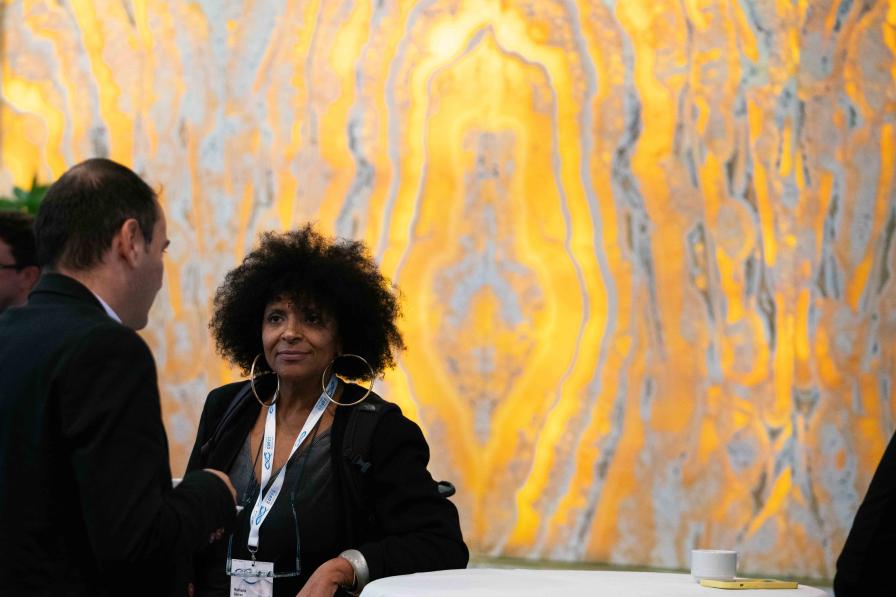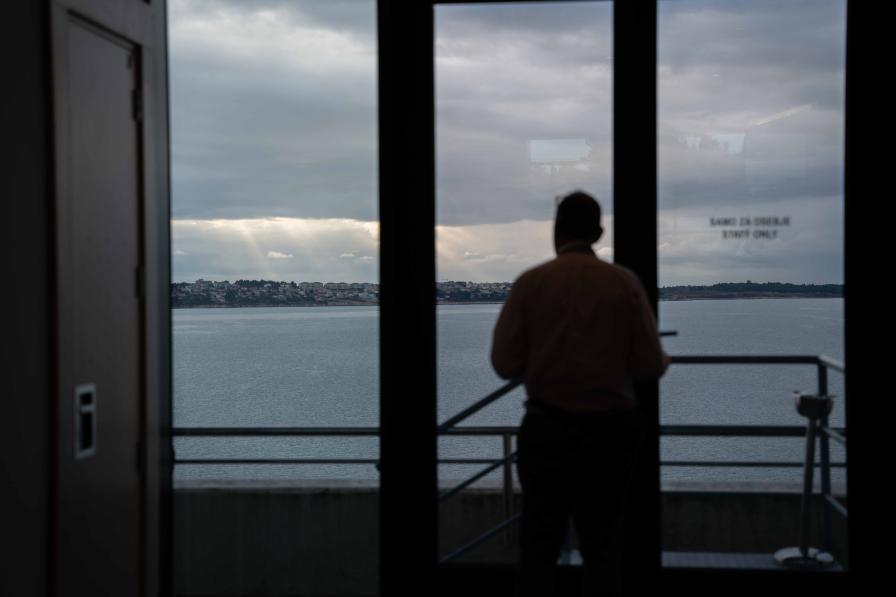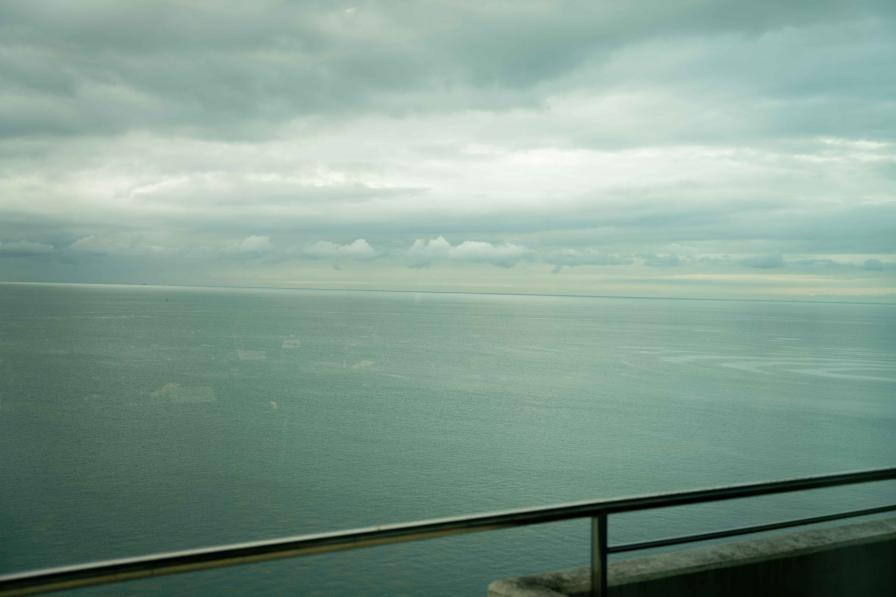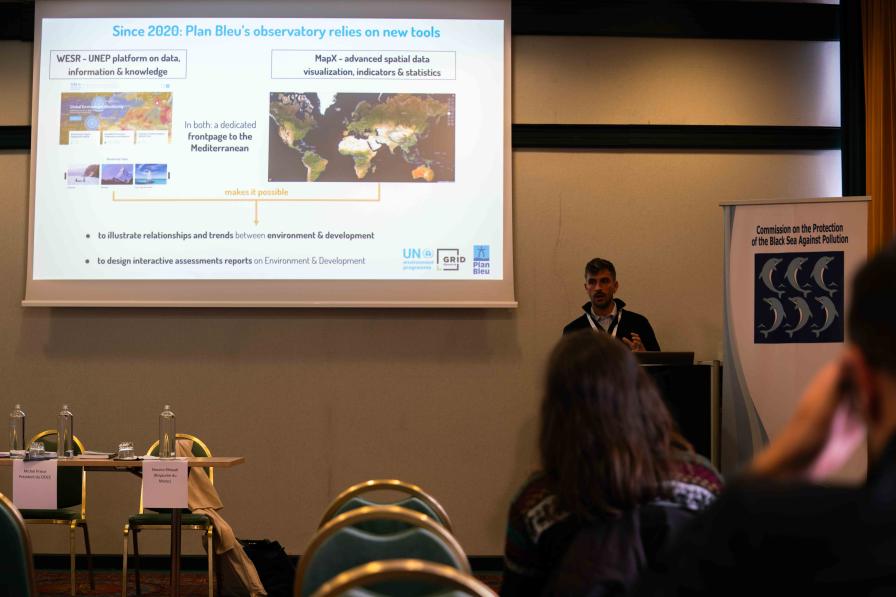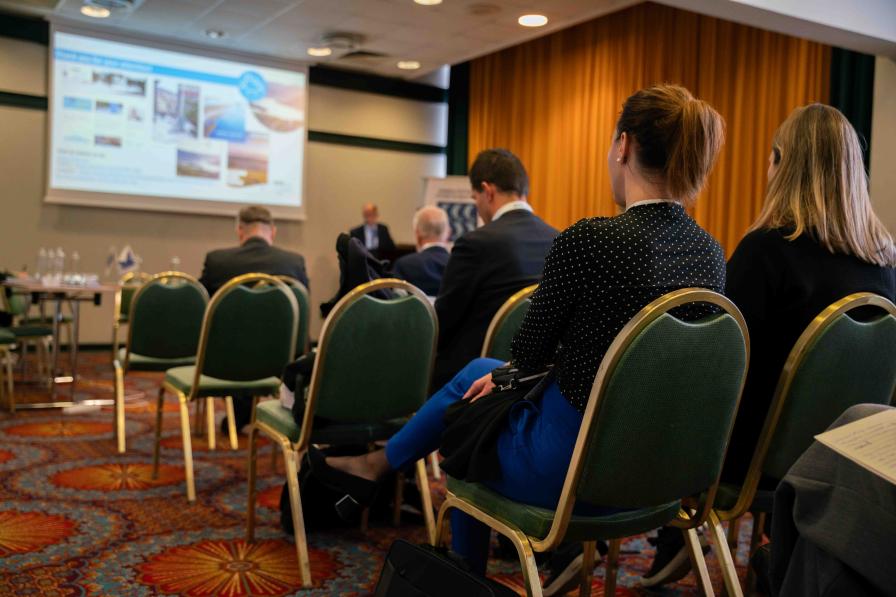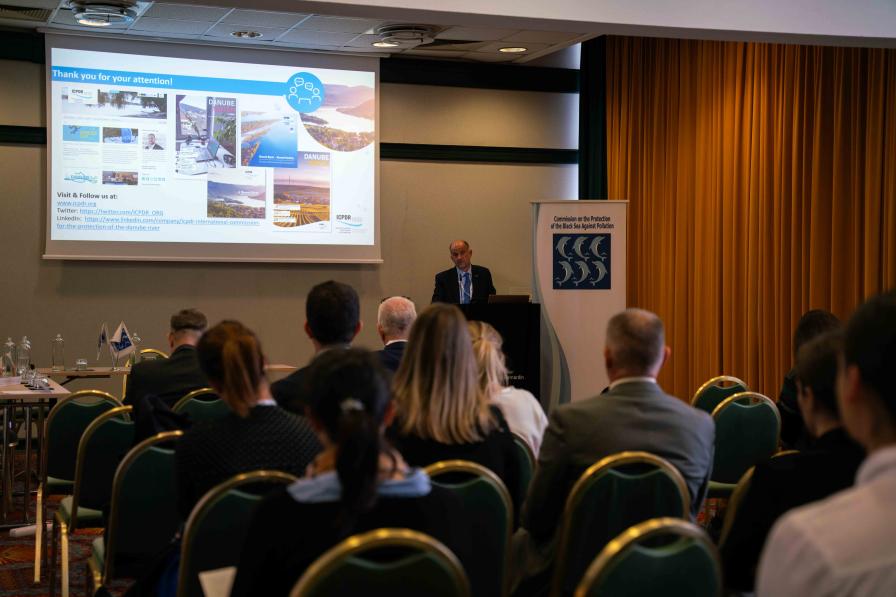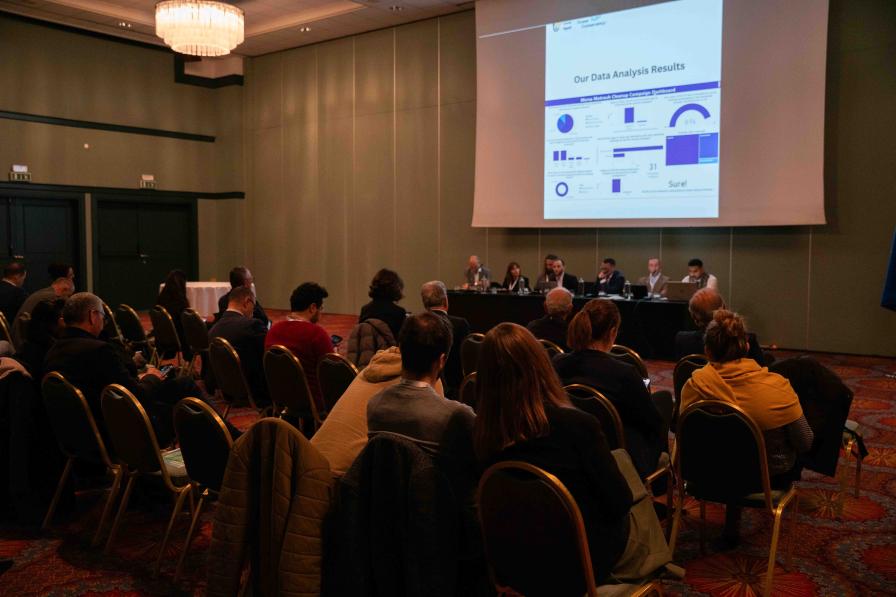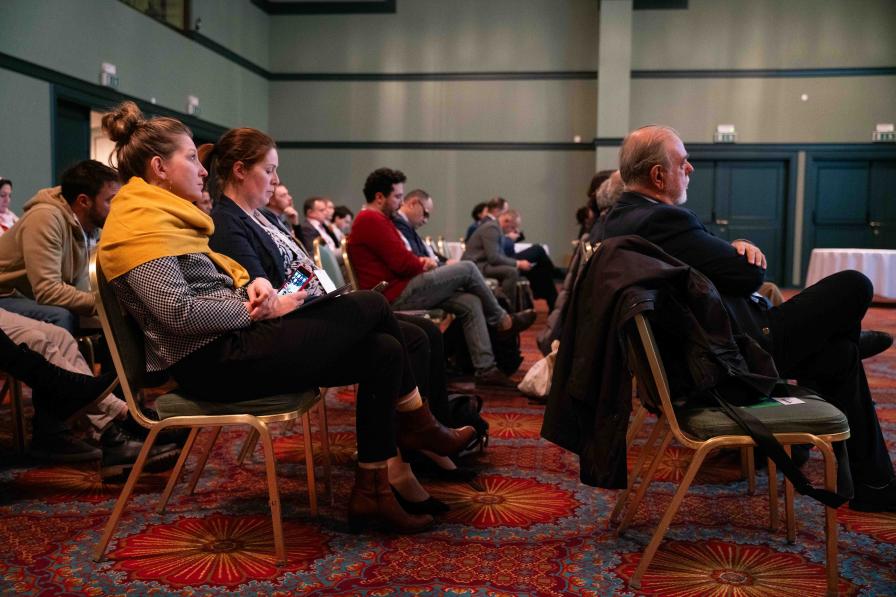The Mediterranean Sea is polluted by some 730 tonnes of plastic waste every day, and the region is warming 20% faster than the global average. Against this backdrop, the 23rd meeting of the Conference of the Parties to the Barcelona Convention (COP 23) opened in Portorož, on the Slovenian coast. A fitting scene, as the protection and sustainable use of this sea and its coasts are the main objective of this Convention and hence the focus of its biennial meetings.
Noting “we have fallen short of achieving good environmental status”, Fatma Varank, Deputy Minister of Environment, Urbanization and Climate Change of Türkiye, and President of the COP Bureau, opened the meeting and called for a holistic and united search for solutions.
Given this COP is taking place in parallel with the UN Climate Change Convention (COP 28) in Dubai, Maša Kociper, State Secretary at the Office of the Prime Minister of Slovenia, encouraged common actions and collaboration to “avoid the perfect storm and sail with the mild winds of sustainable development and green transition.”
Elizabeth Maruma Mrema, Deputy Executive Director, UN Environment Programme (UNEP), underscored the importance of the Barcelona Convention, its Protocols, and UNEP’s Mediterranean Action Plan (MAP) in the context of a world fighting the triple planetary crises of climate change, biodiversity loss, and pollution. She also: called for bold steps towards a sustainable blue economy; drew attention to the establishment in the Mediterranean Sea of a sulphur emission control area; noted nature-based solutions as paramount; and stressed the importance of cooperation.
Tatjana Hema, Coordinator, UNEP/MAP – Barcelona Convention, drew attention to successes within the Mediterranean region and noted the MAP’s Medium-Term Strategy 2022-2027, its aims, and progress achieved.
Delegates welcomed Mitja Bricelj, Ministry of Natural Resources and Spatial Planning, Slovenia, as the newly elected COP President. Bricelj encouraged participants to pursue actions towards a better quality of life and future for the Mediterranean. COP 23 approved the proposed Bureau composition until 2025, with: Slovenia as President; Egypt, Lebanon, Monaco, and Spain as Vice-Presidents; and Montenegro as Rapporteur.
After some initial remarks on the draft ministerial declaration, delegates agreed to continue discussions and drafting in an informal working group, led by Slovenia. A contact group on the budget, led by Egypt, worked during the afternoon.
In the afternoon plenary, delegates addressed several draft decisions on thematic issues, including on compliance and reporting, the 2023 Mediterranean Quality Status Report, a Renewed Ecosystem Approach Policy in the Mediterranean, and agriculture management.
There was significant discussion on a draft decision that proposes different options for amending annexes to the Convention’s Protocol concerning Specially Protected Areas and Biological Diversity. Discussions centered on whether to list certain ray species in Annex II (endangered or threatened species) or in Annex III (species whose exploitation is regulated). Some parties urged an ambitious approach based on the precautionary principle, noting that the species in question require significant protection. Others, however, called for more time for consultations, and urged taking into account that these species are a source of income for fishermen, especially in developing countries. They felt that any approach should be based on human rights. Discussions were deferred until Wednesday, pending further consultations.
Several side events were held during the lunch break and in the evening on pollution, including marine litter, and on legal aspects of implementation and best practices of cooperation.
To receive free coverage of global environmental events delivered to your inbox, subscribe to the ENB Update Newsletter.
All ENB photos are free to use with attribution. For the Barcelona Convetion COP23, use: Photo by IISD/ENB | Mika Schroder
